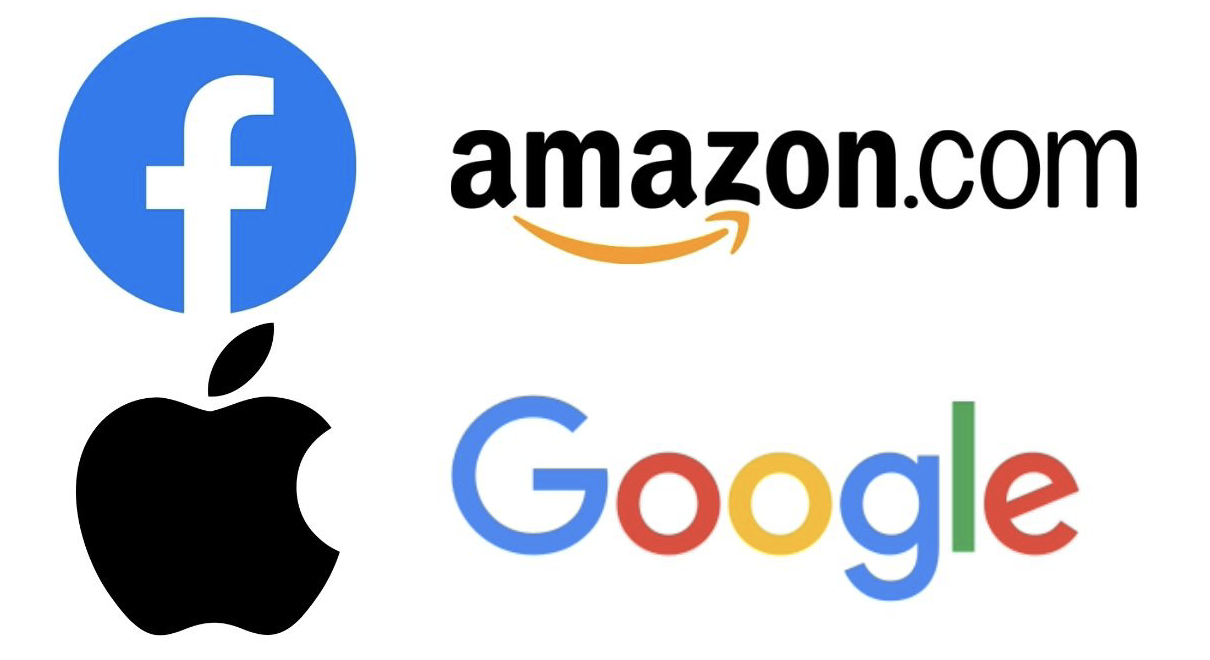When it comes to web browsers most of us use Google. For online shopping we use Amazon. To call friends we use Apple Iphones. And, when it’s time to connect with others we use Facebook, owner of Instagram. Over the past two decades, these four companies – part of what is known as Big Tech – have secured their grip on the American population. They have become ubiquitous and inescapable, and as such questions regarding the ethicality of their practices have emerged: many question whether Google is stealing their data, while others ask if Facebook is disseminating propaganda. These predatory practices are banned under US antitrust law and as a result investigations and lawsuits have been established against these four companies. This article will break down the Anti-trust lawsuits faced by Google, Facebook, Apple and Amazon.
Before dissecting the three companies and their circumstances, it is important to understand American antitrust laws and their founding. In the 1800s, America’s steel and oil industries were monopolized by US Steel and Standard Oil respectively. This lack of competition, intrinsic to a monopolized industry, allowed US Steel and Standard Oil to increase their prices without increasing quality, harming consumers. Senator John Sherman recognized these inefficient allocations of resources, called market failures. He grouped these market failures with other business malpractices that harm consumers and competing businesses and proposed regulations to prevent them. He called these regulations, ratified in 1890, the Sherman Antitrust Laws.
The Sherman Antitrust Laws are at the center of Google, Facebook, Apple and Amazon’s lawsuits.
In Google’s situation, the company is being sued by the federal government for using anti-competitive tactics that harm surrounding businesses. The search engine accounts for 80% of all searches in the US and according to the Wall Street Journal, the government “alleged that Google uses billions of dollars collected from advertisements on its platform to pay for mobile-phone manufacturers, carriers and browsers, like Apple Inc.’s Safari, to maintain Google as their preset, default search engine.” By ensuring that they are the default search engine, Google limits the exposure of other companies and thus asserts control over the industry. This insurmountable power creates what the WSJ calls a “cycle of dominance” and may breach the Sherman Antitrust Laws for its anti competitive nature, however, that is still under investigation.
Similar to Google, Facebook is accused of exerting its power to maintain its position in the social media industry. Facebook has allegedly bought small startups and abandoned them in an attempt to nip all competition in the bud. Up to 46 US states have begun proceedings against Facebook because they believe that Facebook’s monopolistic practices have allowed for the stagnation of innovation, especially regarding user protections. If learned to be true, these actions are in violation of Antitrust Laws and could lead to the dismantling of Facebook including separating Instagram, Facebook and Whatsapp to create competition.
According to D.C. Attorney General, Karl Racine, Amazon is also among those companies exerting monopolistic control. Amazon allegedly punishes independent merchants for listing their products for less on websites other than Amazon. This is control forces online retailers to conform to Amazon’s guidelines and enables Amazon to dictate prices making products more expensive for consumers. This allegation asserts that Amazon is able to and actively does harm competition and consumers, meaning that it violates American antitrust law.
In addition to Google, Facebook and Amazon, Apple was also sued for violating antitrust laws.
Epic Games, the video game company responsible for Fortnite, alleged Apple of restricting competition in the App Store. The company stated that Apple exploits developers by charging a 30% commission on in-app purchases. Representatives of Spotify, a music streaming service, similarly complained that the fact that Apple Music is exempt from the 30% fee whereas Spotify is subject to it creates an unfair environment and stifles competition. Although these complaints are valid, judges have ruled that they do not violate antitrust law as the App Store is not the only location for companies to list their products, and as a result, these companies are not technically beholden to Apple’s charges. Nonetheless, the question of whether Apple’s App Store practices are ethical remains.
While these four companies’ practices may violate antitrust theories, it is difficult for courts to pinpoint their violations due to antiquated antitrust laws – as said by Fast Company, “the Department of Justice [is] trying a 21st-century business model within a 20th-century legal framework.” It will likely take years before Apple, Amazon, Google, and Facebook face ramifications or are forced to change their practices as law must change to address contemporary issues. Even if these companies are told to be in violation of antitrust laws and are consequently divided, the question remains: will anything change for consumers?






